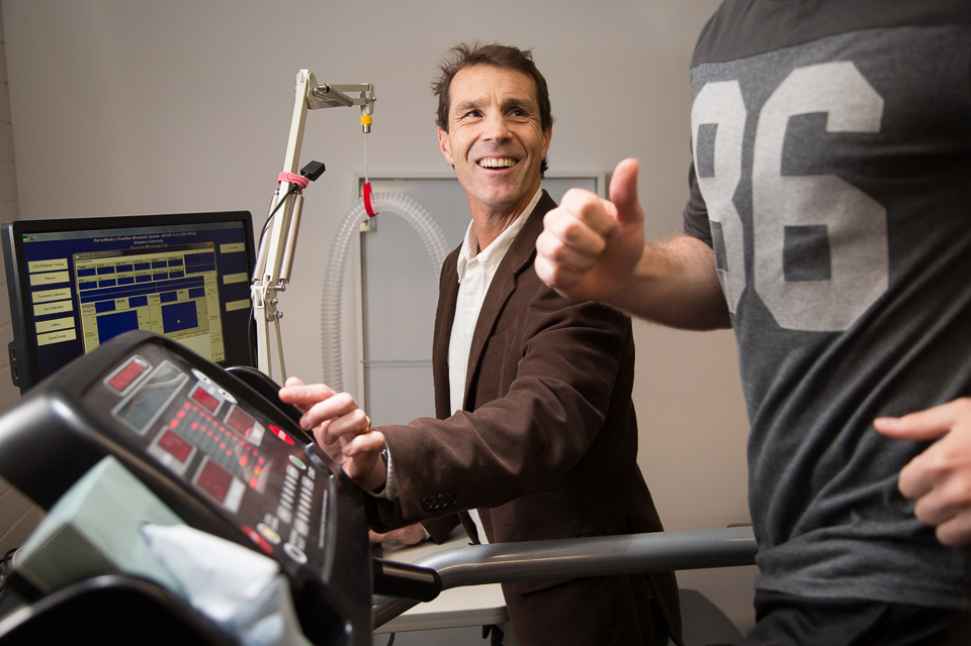Stairway to success
The 1,254 steps of the Rialto Tower seem a daunting enough task to climb at any pace, but from the late 1980s to 2005 they inspired men and women in a race to the top.
Professor Murray Drummond felt drawn to the step race but almost missed out on competing in the first race due to an oversupply of men wanting to take part. This not only pushed Professor Drummond’s competitive instinct but also piqued his academic curiosity, driving him to study the link between masculinity and sport.
Just one aspect of his career-spanning focus is a longitudinal study following a group of boys from the age of five through to the end of Year 12 in order to gain a more in-depth analysis of the links that boys have with sport
“The boys will be 14 in 2016, and we’ve started to discuss things like social media and how that affects them, and how they’re now trying to impress the girls in sport instead of trying to beat them,” Professor Drummond said.
“At the same time I am also conducting a study of middle-aged men and sport, and it is an interesting comparison because sometimes their motivations in sport are no different to those of the young boys, and other times they are a world apart.”
Now an international expert in men’s health, sport and body image, Professor Drummond is the director of the SHAPE Research Centre (Sport, Health and Physical Education).
The Centre’s focus on sport, health and physical education sets it apart from many other centres due to its holistic approach.
“Sport can be a great driver of joy, inspiration, belonging and health for anybody if they get the chance to participate in a way that matches their needs and perceptions,” Professor Drummond said.









